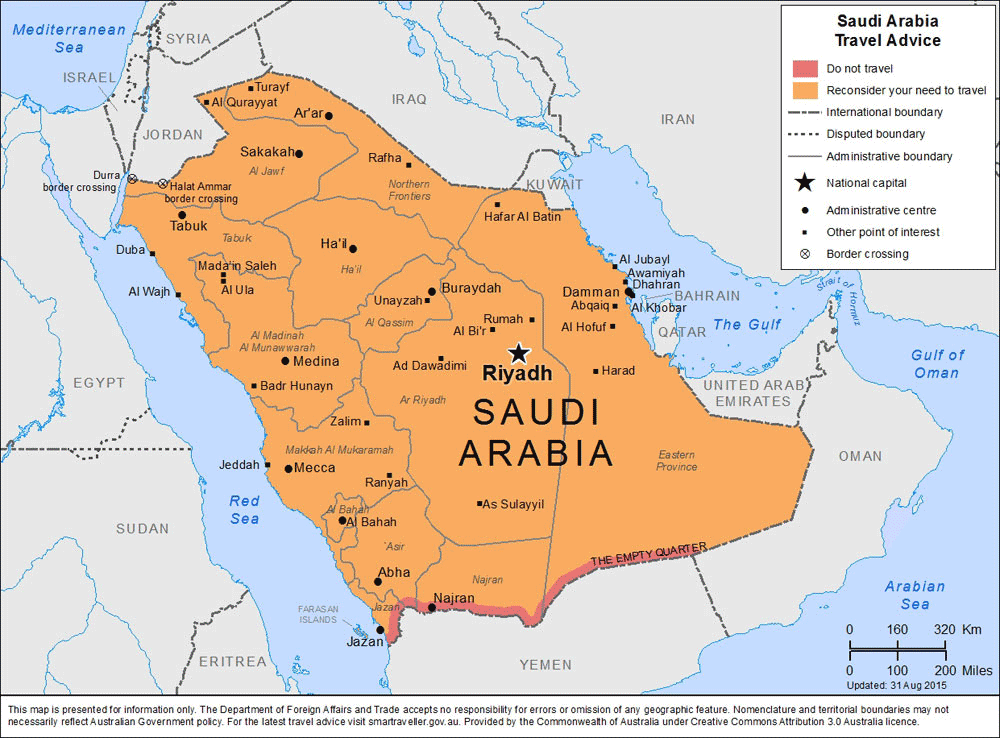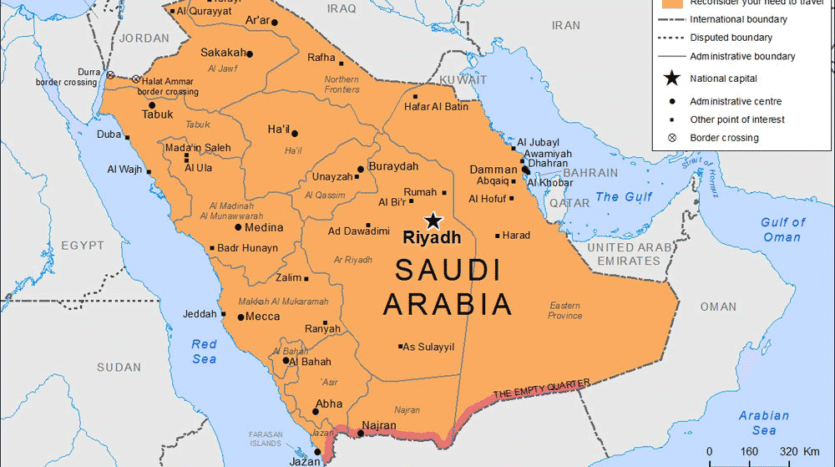Business Setup in Saudi Arabia: The Ultimate Step-by-Step Guide for Foreign Investors (2025)
Why Invest in Saudi Arabia?
Saudi Arabia has rapidly transformed into an open, diversified investment hub under Vision 2030. Recent reforms allow up to 100% foreign ownership in most sectors and simplify company registration, making Saudi Arabia a prime destination for international businesses. The Kingdom’s strategic mega-projects (NEOM, Red Sea, Qiddiya, etc.) and emerging industries (tourism, entertainment, technology, renewable energy, mining, and advanced manufacturing) offer abundant opportunities. Key Vision 2030 initiatives and regulatory changes are already in effect: for example, in 2024 over 6,000 foreign companies were newly licensed, and hundreds of regulatory reforms have slashed setup times. In practice, this means a streamlined digital process for “company registration in Saudi Arabia,” where foreign investors now register with the Ministry of Investment (MISA) instead of securing an old SAGIA license. Under the updated Investment Law (augmented by late-2024 regulations), foreign investors simply complete an online MISA registration and then proceed to commercial incorporation – a unified one-stop approach that covers multiple business activities. The new rules emphasize equal treatment of all investors and freedom to transfer funds, explicitly ensuring no bureaucratic delays on capital or profit remittance.

Legal Framework and Foreign Investment Law in Saudi Arabia for business setup
Saudi Arabia’s legal framework for foreign investment has been overhauled to align with global best practices. As of late 2024, the Foreign Investment Law replaced the older licensing regime with a simple registration mechanism. Under the updated Investment Law, the Ministry of Investment (MISA) maintains a national investor register; foreigners must register with MISA before engaging in business activities. Crucially, this registration requires no license fees and can cover multiple sectors at once. In effect, the MISA registration serves as the new “investment license.” Once MISA confirms registration, the company can be incorporated with the Ministry of Commerce (MoC) and pursue sector-specific permits as needed.
All foreign investors must ensure their activities are permitted under Saudi law. Most commercial, industrial, and service activities are freely open to foreign capital, but a published “negative list” of excluded activities still applies. Restricted areas include national security and cultural sites (e.g. oil exploration, defense manufacturing, and ownership of properties in Mecca/Medina). If a foreign investor wishes to engage in a restricted activity, MISA will refer the request to the relevant authority for special approval. In practice, the list of banned sectors is narrow, and all permitted activities fall under a presumptive “freedom of investment” principle.

Choosing the Right Business Structure in Saudi Arabia
Foreign companies in Saudi Arabia typically register as one of the following entities, each with distinct requirements:
- Limited Liability Company (LLC) – the most common form, requiring at least two shareholders. An LLC’s paid-up capital is often modest (e.g. SAR100,000 is typical for simple trading or service activities), although MISA can set higher capital minima for regulated sectors. LLC shareholders enjoy limited liability, and the entity can be 100% foreign-owned in most fields. (Saudi nationals or GCC citizens can also be shareholders.)
- Joint Stock Company (JSC) – a share-capital company (private or public) suitable for large-scale projects. It requires a higher minimum capital (often SAR1–5 million) and at least five founders for a public company. Private JSCs can be fully foreign-owned if the activity is open to investment.
- Branch Office – a legal extension of a foreign parent company. Branches may conduct commercial activities (often similar to an LLC) but do not have a separate capital requirement of their own. The parent company’s audited financials and CR must be submitted, and a Saudi manager is typically required.
- Representative (Liaison) Office – a non-commercial presence limited to market research, promotion, or liaison tasks. It cannot generate local revenue. Establishing a rep office is simpler (often requiring only a local agent and minimum paperwork), but it offers limited scope of operations.
- Joint Venture – effectively an LLC or partnership with at least one Saudi partner. Foreign investors may form joint ventures if desired, although most sectors allow full foreign equity.
In all cases, at least one General Manager (local or expatriate) must be appointed to run the company. If the manager is a foreigner, they must obtain a Saudi work visa and residency permit (Iqama). Saudi law also mandates a physical office for every registered company; virtual addresses are not acceptable for initial registration. The company must register its address with Saudi Post to obtain a national address code.
Step-by-Step Registration Process in Saudi Arabia
The 2025 company formation process in Saudi Arabia is largely digital and can be summarized as follows. First, a foreign investor registers on the MISA e-Services portal (“Invest in Saudi”) and submits required documents (identity, corporate records, incorporation documents, etc.). MISA typically processes registrations within days or weeks, and upon approval, it issues an investment registration certificate. Next, the investor proceeds to incorporation through the Ministry of Commerce’s online platform (the Saudi Business Center). There is a specific e-service for “establishing a company under an investment license,” which guides users through selecting partners, activities, management data, and capital. All incorporation steps (name reservation, Articles of Association, commercial registration, etc.) are handled electronically; once completed, the MoC issues the company’s Commercial Registration (CR) certificate and CR number.
After incorporation, the company must complete a few final formalities. In particular, documents often need notarization and attestation (usually at a notary or online) and the official company details must be published in the Saudi Official Gazette. The company opens a local bank account (often with an initial deposit – e.g. SAR100,000 for an LLC), registers for Zakat and tax with the Zakat, Tax and Customs Authority (ZATCA), and obtains any sectoral permits (e.g. from the Ministry of Health for medical businesses, or the Saudi Food and Drug Authority for pharmaceuticals). All employing companies must register with the General Organization for Social Insurance (GOSI) for worker social insurance. Membership in the local Chamber of Commerce (for the relevant city and business type) is also required before the CR is finalized. The MoC platform automatically enforces many conditions: for example, the CR application will only succeed if a valid MISA investment registration exists.
Throughout this process, foreign founders should note that Saudi government agencies operate mostly in Arabic. However, official portals (like InvestSaudi and the Business Center) have English options, and many registrars accept English documents once properly certified. In 2025, one should expect the entire setup process (MISA registration, MoC incorporation, tax registration, and bank account opening) to take roughly 6–12 weeks, depending on industry approvals. In summary, the flow is: register with MISA → incorporate at MoC → complete post-incorporation registrations (tax, labor, etc.) → obtain visas for any foreign employees.
Taxation, Repatriation and Incentives
Saudi Arabia’s tax regime is straightforward for foreign businesses. The current corporate income tax rate is 20% on net profits attributable to foreign shareholders. (By contrast, companies fully Saudi/GCC-owned pay the 2.5% Zakat instead.) A branch of a foreign company or any business with non-Saudi ownership pays 20% on its taxable income. Notably, certain activities carry higher rates: oil and hydrocarbon income is taxed at 50–85%, but most non-oil enterprises face just 20%. Saudi Arabia imposes no personal income tax, and no local provincial taxes beyond these. However, withholding taxes apply to outbound payments: for example, dividends, interest and royalties paid to non-residents are generally subject to 5–15% WHT. Companies must also register for and collect 15% Value-Added Tax (VAT) on local sales (up from 5% prior to 2020).
Importantly for foreign investors, profit repatriation is unrestricted. Saudi law allows 100% free transfer of dividends and capital abroad, so long as taxes are settled. The Saudi Arabian Monetary Agency explicitly notes there are no controls on foreign exchange or capital transfers for businesses. Losses can be carried forward indefinitely to offset future profits. Moreover, Saudi Arabia has a growing network of double-taxation treaties to avoid double taxation on cross-border income.
The government offers numerous incentives to attract investment in priority sectors and regions. In general, special economic zones and mega-projects often enjoy tax breaks: for example, major projects under Vision 2030 may receive corporate tax holidays or exemptions for many years. Some free zones allow customs and VAT exemptions on capital imports, and even 100% foreign ownership with simplified regulations. Firms operating in certain underdeveloped regions (Ha’il, Jazan, Najran, etc.) can benefit from allowances such as reduced taxable salaries for Saudis and accelerated depreciation, under ten-year tax incentive programs. Research, development, and industrial projects often qualify for customs duty exemptions on imported machinery and raw materials. New tax rules for Regional Headquarters (RHQ) allow qualifying multinationals to enjoy a 0% tax rate on eligible income and 0% withholding on intercompany payments, provided certain substance and reporting criteria are met. Altogether, foreign companies in Saudi Arabia may access rebates and deductions far beyond what many other markets allow.
Saudization and Workforce Considerations
Saudi labor policy emphasizes Saudization (Nitaqat): private employers must meet national employment quotas by hiring a minimum number of Saudi citizens. These quotas vary by industry and company size, and failure to comply can limit visa issuance and expose firms to penalties. Companies are classified into tiers (Platinum/Green to Yellow/Red) based on their Saudi-to-expat ratio. Those in high tiers gain benefits like faster visa processing, while firms in the low-compliance (Red) zone face restrictions on new work visas and licensing. Small firms (fewer than 10 employees) must still hire at least one Saudi national. In practice, foreign companies should budget for competitive salaries to attract skilled Saudis and invest in training programs. The government even offers tax incentives for on-the-job Saudi training and hiring (e.g. deductions for Saudis employed).
For expatriate staff, Saudi Arabia uses an employer-sponsored work visa (Iqama) system. After company registration, foreign executives apply for a one-year business entry visa through the Ministry of Foreign Affairs; once in the Kingdom, it is converted to a multi-entry visa and then to an Iqama. The company must also register on labor portals (like Qiwa, Muqeem, and Absher) to manage visa issuance, renewals, and compliance. Recent visa reforms under Vision 2030 have also introduced new investor visas (the Premium Residency program) and longer visas for entrepreneurs, making it easier to live and work in Saudi Arabia. Overall, ensuring compliance with Saudization rules and labor registrations is essential for smooth operations and future expansion.

Cultural and Operational Best Practices
Business culture in Saudi Arabia is relationship-driven and hierarchical. Personal trust and face-to-face meetings are highly valued – Saudis often prefer to work with partners they know and will spend considerable time on introductions and social niceties. Building rapport (perhaps over Arabic coffee or a meal) is considered part of the business process. Decision-making is typically top-down, so foreign negotiators should seek out and engage directly with the highest-ranking decision-maker available, while showing respect for seniority. Meetings often start with small talk and may pause for prayer breaks; it’s advisable to schedule meetings before the midday prayer or after lunch. Saudis generally prefer a measured pace in negotiations, avoiding high-pressure tactics. Punctuality is important, but some waiting is common – if delayed, remain polite and patient.
In terms of etiquette, dress conservatively (men in business suits; women in modest attire, often with headscarf in conservative settings) and use formal greetings. The working week is Sunday through Thursday (weekends are Friday and Saturday). Understanding local customs (e.g. strict prohibition on proselytizing, sensitivity around religious and gender issues) is vital. Finally, be mindful of language: while English is widely used in business, learning basic Arabic phrases or hiring a local consultant can help bridge cultural gaps.
Priority Sectors and Ownership Restrictions in Saudi Arabia
Saudi Arabia’s economic plan prioritizes certain sectors, creating special opportunities. Tourism and hospitality (led by giga-projects like NEOM and the Red Sea resorts) are booming. Entertainment, media and culture have grown rapidly with new cinemas, events and festivals. Technology and innovation (AI, fintech, cloud, cybersecurity) are national focuses, with major investments in smart cities and digital infrastructure. Renewable energy and mining are strategic, given Saudi’s push into solar, wind, green hydrogen, and minerals extraction. Construction, logistics, and industrial manufacturing are also in demand as the country expands airports, railways, and domestic production. In sum, foreign investors may find incentives and public-private partnership opportunities in these growth sectors.
By law, foreigners can in principle own 100% of most business activities. Indeed, one expert notes: “foreign investors can own 100% of their company in most sectors … However, certain regulated industries such as oil exploration, security, and some professional services may still require a Saudi partner”. In practice, this means that except for a few sensitive fields (such as defense, Islamic religious services, or utilities), no local partner is needed. The government periodically publishes an updated list of negative/excluded activities which require special approval. Any such approved partnerships or restrictions are handled through the MISA screening process. Otherwise, foreign businesses compete on equal footing: they benefit from the same property rights and dispute-resolution guarantees as domestic firms, including protection against expropriation and unfettered repatriation of profits.
Conclusion: Key Takeaways for Investors in Saudi Arabia
Saudi Arabia’s investor-friendly reforms and ambitious Vision 2030 programs have fundamentally reshaped its business environment. International companies now face a streamlined, mostly digital process for “opening a company in Saudi Arabia,” governed by modern laws that welcome foreign capital. By following the required steps – registering with MISA, incorporating through the Ministry of Commerce, and complying with labor and tax regulations – foreign investors can establish Saudi entities in a matter of weeks. The Kingdom offers compelling advantages: from generous tax and customs incentives to 100% profit repatriation and access to a large market. Coupled with careful attention to local labor rules (Saudization) and cultural norms, this makes Saudi Arabia an increasingly attractive base for global business. Companies that align with Saudi Arabia’s strategic sectors and build strong local partnerships can tap into a fast-growing economy poised for decades of diversification and growth.










